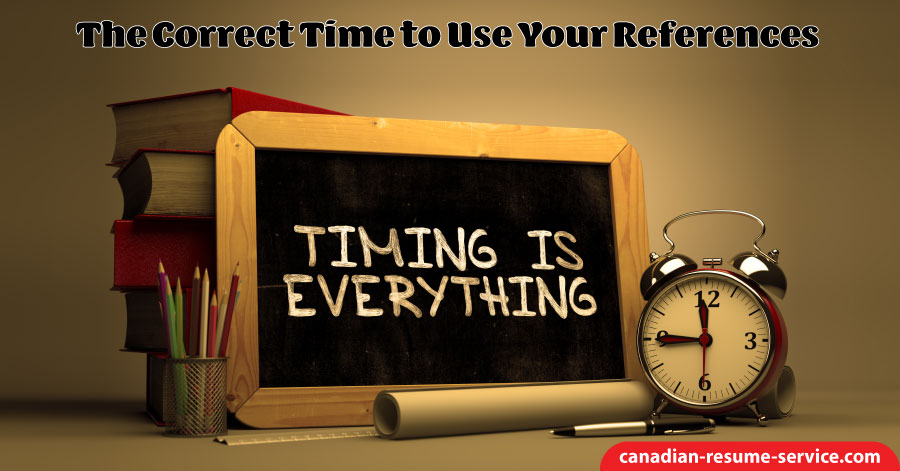Do you know the correct time to submit your employment references? Your references are a vital tool at your disposal and can be instrumental in helping you secure an ideal position. There isn’t a more effective marketing resource for yourself than references that provide positive, detailed testimony about you as an employee.
However, submitting a compelling resume and cover letter is your best chance of initially attracting an employer’s interest. After you engage the decision-maker’s interest, your references are powerful as they add positive information about you from someone other than yourself.
The individuals you ask to be your references are invaluable testimonies to potential employers. With such an incredible marketing tool in your back pocket, knowing the best time to release this information is essential.
Oftentimes, an employer will ask you to supply them with a list of your references before offering you a job. They will want to contact your references to ensure the information you’ve provided is correct and determine what type of worker you are and your past accomplishments. Ensure your references are ready to sing your praises because this is a substantial aspect of the recruitment process.
References Are Submitted After an Interview
Since an employer should contact your references mainly to verify the information you’ve provided and delve deeper into what you offer, your references are meant to be used after an interview. This means you should not be handing out your references until asked to at an interview. Your references are your secret weapon, so you should protect them until they’re needed.
Protect Your Reference Information
If you give out your references too freely or even place them on your resume, you may run into trouble with the people you’ve asked to speak on your behalf. If your references are contacted too often, they could get annoyed or upset, and you don’t want to upset the people helping you out.
As your reference information is somewhat private contact information, you will want to be protective of it, only revealing it at an interview with an employer with whom you want to work.
Another advantage of holding onto your references until later is that you will select the best people for the position or company you are interviewing with. Some references are more relevant than others. This way, you’ll provide an employer with the most appropriate references. Manage your reference data carefully.
Lastly, if you happen to run into a job ad that asks for your references with your application, state you will be willing to provide your excellent references at an interview. Another option is to provide your references’ names but withhold the contact information, saying you will give this information at an interview.
Details about your references contain confidential personal information, so you should not hand them out randomly. However, they are also one of your most powerful marketing tools, so use them cautiously and release them at the appropriate moment…at an interview.
Choosing individuals who can speak to your qualifications and work ethic effectively is essential when selecting and submitting references. Select references who know you well and can provide specific examples of your skills and accomplishments. Additionally, consider the relevance of each reference to the position you’re applying for, choosing those who can speak to your abilities about the job requirements.
As for submitting references, it’s best to wait until after an interview when the employer requests them. This ensures that your references are only contacted when necessary and that they’re prepared to provide relevant information about your candidacy. By following these techniques, you can ensure that your references enhance your job application and help you stand out as a strong candidate.
What techniques do you use for selecting and submitting your references?
Comment and share below!
As always, contact Candace for more help in your job search.

